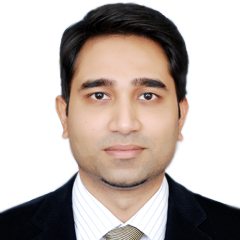In 2013, I investigated the lack of research orientation in private schools and how it affects the students when they reach the tertiary level of education. It was rather my own experiences that I chose to investigate this phenomenon. I was baffled by the findings of the study which indicated that senior university students doing their baccalaureate voiced that in their final year of study when they were required to do a thesis most of them were unable to comprehend the research terminologies. Even quantifying abstract things like learning, behavior and performance were too difficult for them. By the time they got to know how to do operationalisation they had run out of time. They compensated for this by plagiarizing.
With such trends, students are being led to higher education with unclear thoughts and ambiguity regarding research practices. Now imagine that the same cohort of students were made aware of basics on how to conduct a research in schools and often given assignments like finding similar and different views on the same topic (just like literature review) wouldn’t it develop a better understanding of reviewing literature and also creating a sense of tolerance in students as well. Everyone doesn’t always have the same views or inclinations. Hence, such research creates a sense of acceptance in students and by the time they reach higher education they will be better prepared for research practices and be more tolerant citizens. This change can only come through education and by investing in the educational sector.
I believe that acquiring knowledge is a life-changing experience and in today’s world of curiosity and creativity, there is nothing that cannot be explored.
In Pakistan, the recognised methods of imparting education have handicapped the young minds to question and to apply the knowledge that they have procured through a defective method of teaching where the teacher is the ultimate source of knowledge and books are a mere depiction of truth and tolerance is a blank canvas
Before stepping into the era of scientific revolution man used to accept all the answers provided by their ancestors through storytelling and enactment. But through the process of trial and error, they developed a systematic approach to finding answers through research. As John Dewey said, “If we teach today as we taught yesterday, we rob our children of tomorrow” (John Dewey, Democracy, and Education).
Research provides logic and reasoning by asking questions which expose reality in its true essence. It has a lifelong impact on the formation of one`s individuality. Schools play an eminent role in making concrete foundations for students’ lifelong learning. Contrary to this, there seems to be a lack of research culture in Pakistani schools.
 The culmination of a conventional way of teaching is creating a huge gap for students who are keen to explore and find solutions to the real world problems. The likes of Shaheer Niazi, a student who recently presented his mind-boggling ideas on the electric honeycomb phenomenon barely got noticed for several years but only if they have supportive mentors or access to facilities or labs like LUMS where Shaheer Niazi used to do experiments. Today there is a need to adopt a new learning style where students can learn, unlearn and relearn. Pakistani students have the potential to produce high-quality results only if they are provided with opportunities and guidance just like Shaheer Niazi, who made us all proud.
The culmination of a conventional way of teaching is creating a huge gap for students who are keen to explore and find solutions to the real world problems. The likes of Shaheer Niazi, a student who recently presented his mind-boggling ideas on the electric honeycomb phenomenon barely got noticed for several years but only if they have supportive mentors or access to facilities or labs like LUMS where Shaheer Niazi used to do experiments. Today there is a need to adopt a new learning style where students can learn, unlearn and relearn. Pakistani students have the potential to produce high-quality results only if they are provided with opportunities and guidance just like Shaheer Niazi, who made us all proud.
The findings of my study also suggested that students and teachers are of the view that, encouraging research in schools will provide an advantage to students’ academic performance as well as their overall well-being. Along with these perceptions teachers training, lack of resources and traditional rote learning appears to be major impediments to perpetuate and cultivate the practice of research in schools. It also appears that cultural context plays a huge role in establishing a typical mindset which is grounded in the examination system and its expectations.
At the moment, it appears that most of the institutions are oblivious to the needs of students and global trends that are shaping modern education. Instead of creating a sense of tolerance in schools we rely on other stakeholders to nurture students’ ability to accumulate and digest different point of views.In Pakistan, the accepted methods of imparting education has handicapped the ability young minds to question and to apply the knowledge that they have procured through a defective method of delivering instructions, where the teacher is the ultimate source of knowledge and books are a mere depiction of truth and tolerance is a blank canvas.
The writer an educational researcher in the areas of technology integration, research-based education and learning methods. He is currently working on PhD literature focusing on ICT initiatives and its use in schools
Published in Daily Times, November 28th 2017.
